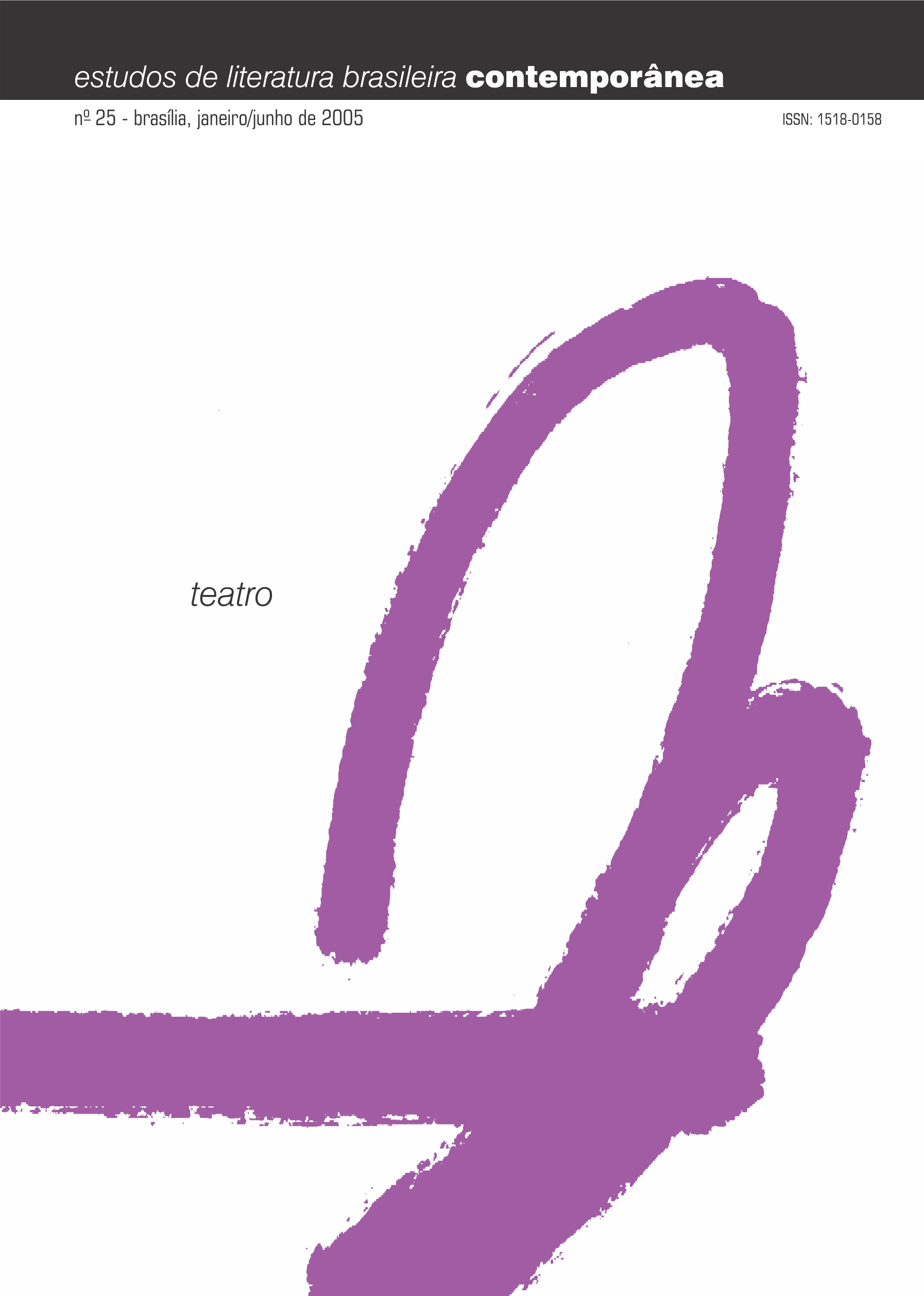Electra nos trópicos:
um mergulho no mar mítico de Nelson Rodrigues
Abstract
Nelson Rodrigues alcança, na peça Senhora dos Afogados (1947), um nível praticamente insuperável de domínio da expressão poética e dos recursos do gênero trágico. Mesmo afirmando desconhecer a tragédia grega e ter apenas contatos descontínuos com a obra de Eugene O’Neill, a peça brasileira descreve um processo inusitado de recepção temática que remete primeiramente a Mourning Becomes Electra (1931) e desta, inequivocamente, à Oréstia de Ésquilo (458 a.C.). A estratégia concebida pelo dramaturgo para camuflar suas fontes foi representar temas autenticamente trágicos como o destino, vingança, hybris e horror, por meio da reinvenção dos mecanismos da tragédia: Rodrigues explora, pois, as propriedades semiológicas do mar, para conectá-las à s ações de suas personagens e aos desejos que as aniquilam.
Downloads
References
ALEXANDER, Samuel. Space, time and deity. New York: Dover Publications, 1966.
BACHELARD, Gaston. A poética do espaço. Rio de Janeiro: Abril Cultural, 1970.
BOITANI, Piero. The Genius to improve an invention: literary transitions. Indiana/U.S.A.: University of Notre Dame Press, 2002.
BOUDIN, M.H. Dicionário de tupi moderno: dialeto tem-bem-ténétéhar do alto do rio Gurupi. São Paulo: Governo do Estado/Faculdade de Filosofia, Ciências e Letras de Presidente Prudente, 1966.
BURKE, Peter. Hibridismo cultural. Trad. de Leila Souza Mendes. São Leopoldo: Editora da Unisinos, 2003.
COHEN, S.H. The Electra figure in twentieth century American and European drama. Michigan: U.M.I., 1968.
CORBIN, Alain. O território do vazio: a praia e o imaginário ocidental. São Paulo: Companhia das Letras, 1989.
GOMES NETO, Darci. O Indianismo na poesia brasileira: contradições ideológicas (do Arcadismo ao Modernismo). Tese de Doutorado. Rio de Janeiro: Departamento de Letras/PUC, 1982.
GULLÓN, Ricardo. Espacio y novela. Barcelona: Andotni Bosch, 1980.
LINS, Ronaldo Lima. O teatro de Nelson Rodrigues: uma realidade em agonia. Rio de Janeiro: Francisco Alves/INL, 1979.
MAGALDI, Sábato. Panorama do teatro brasileiro. Rio de Janeiro: MEC/ DAC/FUNARTE/SNT, s.d.
______. Nelson Rodrigues: dramaturgia e encenação. São Paulo: Perspectiva, 1987.
NUÑEZ, Carlinda F. Pate. Electra ou uma constelação de sentidos. Goiânia: Editora da Universidade Católica de Goiás, 2000.
O’NEILL, Eugene. “Mourning becomes Electra”, em A trilogy. Sydney: Independent Theatre, 1945.
Downloads
Published
How to Cite
Issue
Section
License
Authors who publish in this journal agree to the following terms:
a) The authors maintain the copyright and grant the journal the right of first publication, the work being simultaneously licensed under the Creative Commons Attribution License-Non Commercial 4.0 which allows the sharing of the work with acknowledgment of the authorship of the work and publication this journal.
b) Authors are authorized to enter into additional contracts separately, for non-exclusive distribution of the version of the work published in this journal (eg publish in institutional repository or as a book chapter), with authorship recognition and publication in this journal.
c) Authors are allowed and encouraged to publish and distribute their work online (eg in institutional repositories or on their personal page) after the editorial process, as this can generate productive changes, as well as increase the impact and citation of published work (See The Effect of Free Access).
d) The authors of the approved works authorize the magazine to, after publication, transfer its content for reproduction in content crawlers, virtual libraries and the like.
e) The authors assume that the texts submitted to the publication are of their original creation, being fully responsible for their content in the event of possible opposition by third parties.


